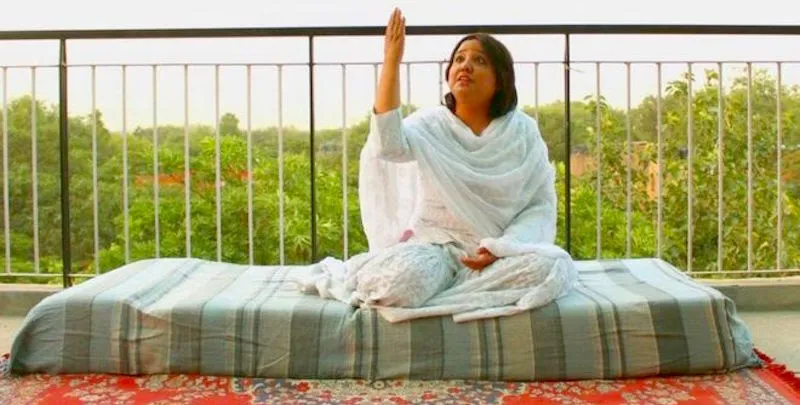How Fouzia is establishing herself in the all-male domain of storytelling
While storytelling is becoming popular with corporates and children alike today , this art form finds its origins hundreds of years ago in the Central Asian region and Iran. Dastangoi is an ancient Urdu oral storytelling art form, which had died down by early twentieth century. Thanks to some brave and talented researchers and skilled young storytellers, the art form is gradually coming back to life.
Shahid Siddiqui, the editor of the Urdu weekly Nai Duniya, said that the craft received “royal patronage in the Deccan region in southern India in the 16th Century, and became a serious art form. During the Mughal era, Emperor Akbar is reputed to have been an expert dastango and did much to popularise this art.”

In order to give her heart and soul to the art form Fouzia has chosen to remain single and dedicate her life to being a dastango. “I studied Urdu in school so that I could read all the classics. I just knew I had to do something bigger with my love for the world of fantasy. I chose Dastangoi as a profession over a well-paying job and my family stood by me every step of the way,” she told the BBC.
Fouzia funded her education through college and university by teaching children. After completing her masters degree in Hindi literature, she started working as a project manager with a non-governmental organisation. Later, she decided to give up her job to receive training in Dastangoi under historian and author Mahmood Farooqui, who is known for reviving the lost art form in India.
Fouzia found it difficult to enter an all-male territory of dastangos. She still remembers that the audience was “surprised to see a woman dastango” when she gave her first performance in 2006. “Women told stories in the privacy of their homes and never publicly. But I have tried to change the norm and have done 88 shows all over the country so far,” said Fouzia. She added that it was “difficult for her to break the stereotypes” as a Muslim woman. “I didn’t wear the hijab or the burka, so people were surprised initially but they gradually accepted me,” she said.
Noted playwright Danish Iqbal has been a witness to Fouzia’s struggle in establishing herself as a celebrated woman storyteller over the past years. “Given her modest background and with no godfather to help, she has done a commendable job of not giving into social pressures and keeping herself motivated in the face of criticism, poor turnout at shows and professional rivalry,” he said.
Do you have an interesting story to share? Please write to us at [email protected]. To stay updated with more positive news, please connect with us on Facebook and Twitter.







